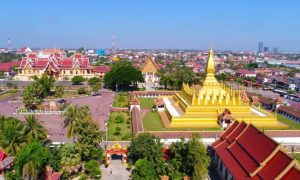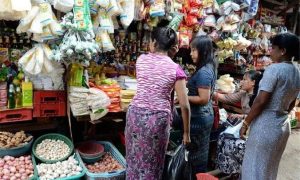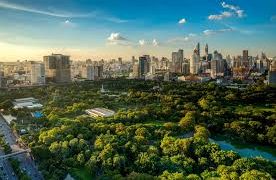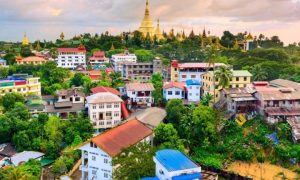With Myanmar's rapid economic rise, the country in Southeast Asia is attracting globalimmigrantsThe eyes of investors and investors. From energy development to digital transformation, Myanmar is full of potential and opportunities. For those looking to relocate to Myanmar and seek business opportunities, it is crucial to have an in-depth understanding of the hot sectors and investment trends. In this article, we'll take you throughMyanmar Immigration and Investmentenvironment to help you better capitalize on the opportunities in this emerging market.
I. Investment advantages of Myanmar
1. Excellent geographic location
Located in the heart of Southeast Asia, Myanmar borders the economies of China, Thailand and India and is an important gateway connecting South and Southeast Asia. Its coastal strip and rich port resources provide natural advantages for international trade.
2. Rich in natural resources
Myanmar is endowed with vast untapped natural resources such as natural gas, oil, gemstones and minerals, as well as vast areas of arable land. These resources provide excellent conditions for investment in the energy and agricultural sectors.
3. Economic reforms and foreign support
Since 2011, the Government of Myanmar has pursued economic reforms and developed a series of policies to attract foreign investment. For example, the Myanmar Investment Law provides policy support, including tax incentives and land use rights, to encourage foreign capital to enter the local market.
4. cheap labor market
Labor costs in Myanmar are lower than in other Southeast Asian countries, while the Government is investing more in vocational training to upgrade workers' skills. This has created conditions for the development of manufacturing, agriculture and services.
II. Popular Investment Sectors in Myanmar
1. Energy & Minerals
Myanmar is a country rich in energy and mineral resources. Exports of natural gas, oil and minerals are important pillars of Myanmar's economy.
- Natural gas development: Myanmar's offshore gas fields have attracted significant foreign investment, particularly from China, South Korea and Thailand.
- renewable energy: As environmental awareness increases, solar and hydroelectric power projects are emerging in Myanmar as future investment hotspots.
- Mining: Mineral resources such as gemstones, gold and silver are in great demand and investors may consider partnering with local companies to mine them.
2. Infrastructure development
Myanmar is in a critical period of economic modernization and has urgent infrastructure needs, including roads, railroads, ports and urban development.
- Transportation ProjectsFor example, the construction of the China-Myanmar Economic Corridor under the Belt and Road Initiative involves large-scale infrastructure investment.
- Real Estate and Urban Planning: Urbanization drives the need for real estate development and modern communities.
3. Agriculture and food processing
Myanmar is an agricultural country and more than 60% of the labor force is engaged in agriculture-related work.
- modernization of agriculture, one of Deng Xiaoping's Four Modernizations: The introduction of high-tech equipment and cultivation techniques can greatly increase yields and provide high-quality food for the international market.
- food processing: Myanmar is rich in raw materials and has great potential for export markets for food processing, such as tea, rice flour and coffee.
4. Tourism and Hospitality Management
As a country rich in tourism resources, Myanmar has great potential for tourism growth.
- Top Attractions Investments: Infrastructure and service sector development in tourist areas such as the ancient city of Bagan and Inle Lake.
- High-end hotels: Demand for high-end hotels and resorts has grown significantly with the increase in the number of international tourists.
5. Digital economy and telecommunications
Myanmar's digital economy is still in its infancy, but growing at an impressive rate.
- Internet penetration: Myanmar's rapid rise in Internet penetration has created space for e-commerce, online education and digital finance.
- Telecommunications: There is still significant scope for investment in upgrading basic communications facilities, especially in remote areas.
Three,Immigration to Myanmarbusiness opportunities
1. Cross-border trade and logistics
As an important trade bridge between China and Southeast Asia, Myanmar's cross-border logistics and warehousing services are a popular choice for immigrant investors. By investing in ports and logistics networks, you can capitalize on its geographic advantages.

2. Small and Medium Enterprises (SMEs) and Chain Management
The local market in Myanmar has a strong demand for retail and catering, especially Western fast food, Chinese food chains and cafes. Migrants can quickly integrate into the market by starting up small and medium-sized enterprises (SMEs).
3. Education and training
The market for vocational training and language education is gradually expanding in line with Myanmar's economic transformation and changing skills needs. Expatriates can open international schools or training institutions to meet the local demand for quality education.
4. green investment
Global environmental trends have prompted Myanmar to focus on the green economy as well. Areas such as sustainable agriculture, organic food cultivation, and the production of environmentally friendly building materials offer opportunities for immigrant investors.
IV. Challenges to migration and investment
While Myanmar is full of opportunities, there are also some potential challenges that immigrant investors need to be prepared for.
1. Legal and policy environment
Myanmar's laws and regulations are still being refined and foreign investors need to be aware of and comply with local policies, particularly with regard to land ownership and taxation.

2. Infrastructure constraints
Myanmar's infrastructure development is relatively underdeveloped, and inadequate transportation, energy and communication facilities may have an impact on investment projects.
3. Cultural differences and communication
Myanmar's language and culture differ significantly from those of other countries. Migrants need to learn basic Burmese and respect local religious beliefs and social customs.
4. Political and economic stability
Although Myanmar is gradually moving towards stabilization, investors need to keep an eye on the changing political and economic environment and develop risk management strategies.
V. How to get startedMyanmar Immigrationinvestment management
- clear-cut objective: Choose suitable industries and investment projects according to your professional background and financial strength.
- Applying for Visas and Permits: Apply for a Myanmar work visa, investment visa or residence permit according to specific needs.
- Find a partner: When doing business in Myanmar, partnering with local businesses or government agencies can reduce resistance to entering the market.
- Understanding market dynamics: Obtain the latest market information by attending industry trade shows and joining chamber of commerce organizations.
VI. Conclusion: Seizing the Unlimited Business Opportunities in Myanmar
As one of the most promising emerging markets in Southeast Asia, Myanmar offers a wealth of opportunities for migrants and investors. From energy development to the digital economy, from infrastructure development to education and training, every sector in Myanmar is full of possibilities. However, the key to successful migration and investment in Myanmar lies in a deep understanding of the local market and adequate planning and risk management.
Choosing Myanmar is not only choosing a developing country, but also choosing a future full of unlimited possibilities. We hope the analysis in this article can help you better grasp the importance ofImmigration to Myanmarand investment opportunities to start a successful and fulfilling journey!






